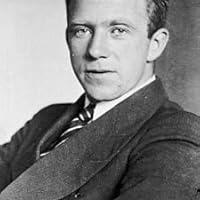
Werner Heisenberg
저자에 대하여
Werner Heisenberg was a prominent German physicist known for his pivotal contributions to quantum mechanics, particularly for formulating the uncertainty principle. Born on December 5, 1901, in Würzburg, he developed an interest in physics early on, later studying under influential figures like Max Born and Niels Bohr. His groundbreaking work during the 1920s earned him the Nobel Prize in Physics in 1932, solidifying his position in the scientific community. Heisenberg's uncertainty principle fundamentally changed the way we understand the behavior of particles at the quantum level, establishing a new framework for modern physics.
Beyond his scientific achievements, Heisenberg's career also included significant political and ethical dilemmas, especially during World War II when he was involved in Germany's nuclear program. Despite the controversies surrounding his wartime work, his contributions to physics remained influential, inspiring generations of scientists. He continued to be active in the field until his death on February 1, 1976, leaving a legacy that permeates various branches of physics and philosophy of science.